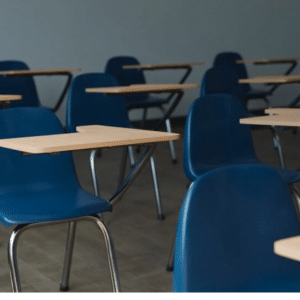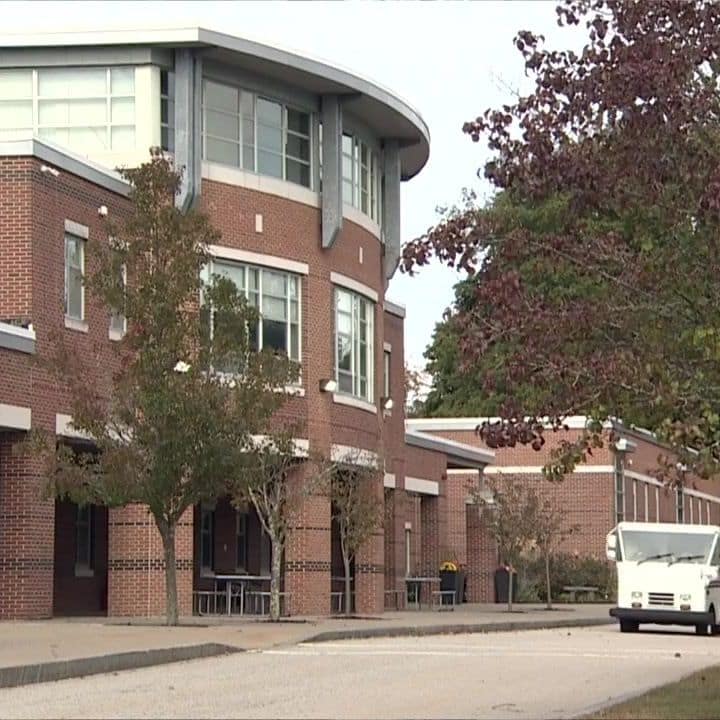The Hingham High School AI lawsuit has garnered significant attention in recent weeks, sparking debates around artificial intelligence (AI), its role in education, and the boundaries of privacy. With rapid advancements in AI technology, educational institutions are facing new challenges in terms of its implementation and regulation. In this article, we will explore the key aspects of the Hingham High School AI lawsuit, the details surrounding the case, and the broader implications for the educational system.
The Origin of the Hingham High School AI Lawsuit
The use of AI in the classroom is becoming an increasingly common issue, as students and educators grapple with the benefits and risks of integrating advanced technology into traditional learning environments.
The lawsuit filed against the school raised several key issues: whether the use of AI for academic purposes constitutes cheating, whether the school’s response was justified, and whether current regulations are adequate to handle the increasing presence of AI in educational settings. The case has brought attention to the legal and ethical concerns surrounding AI in schools, as well as how schools should navigate these rapidly changing technologies.
Key Points of the Hingham High School AI Lawsuit
The Hingham High School AI lawsuit centers on allegations that students utilized an AI tool to bypass the intellectual effort typically required for academic assignments. This came to light after a teacher noticed unusual patterns in the students’ work, leading to an investigation. The lawsuit, however, raises several questions:
- Academic Integrity:
At the heart of the Hingham High School AI lawsuit is whether AI tools should be considered cheating when used for assignments. Traditional academic integrity policies were designed without the anticipation of such technologies, creating a gray area that schools and institutions must now address. - Technology in Education:
Another significant issue that emerges from the lawsuit is the growing role of technology, especially AI, in the classroom. While some argue that AI tools can enhance learning, others feel that they undermine the learning process and encourage laziness or academic dishonesty. - School’s Responsibility:
The Hingham High School AI lawsuit also raises questions about the responsibility of educational institutions in managing the use of AI. Should schools be proactive in educating students about the ethical use of technology? How can they implement policies that keep pace with rapid technological advancements?
Read more: Haitian Creole Translator Device

The Legal and Ethical Dimensions of AI in Education
The Hingham High School AI lawsuit is not an isolated incident but rather part of a larger trend of schools grappling with AI’s impact on education. Legal experts argue that the case may set important precedents regarding how AI is treated in academic settings.
Ethically, the situation is equally complex. On the one hand, AI has the potential to level the playing field by offering personalized learning experiences for students. On the other hand, it can also be misused to cheat or bypass the traditional educational process. In this context, the Hingham High School AI lawsuit presents a crucial moment for policymakers and educators to evaluate the role of AI in shaping the future of education.
The Role of Artificial Intelligence in Modern Classrooms
Artificial intelligence has become an integral part of modern classrooms, offering innovative solutions to both teachers and students. From AI-based tutoring systems to automated grading and feedback, AI can enhance learning and make education more accessible. However, the Hingham High School AI lawsuit highlights the potential dangers of such tools when used improperly.
For instance, students may rely too heavily on AI systems to generate content, resulting in a lack of genuine learning. This over-reliance can also hinder the development of critical thinking and problem-solving skills, which are vital for success in both academic and real-world scenarios. The lawsuit raises questions about whether schools are adequately preparing students to use AI responsibly and effectively.
How Schools are Responding to AI Challenges
In response to the increasing use of AI in academic settings, many schools have started to implement policies aimed at regulating its use. These policies often focus on promoting transparency, fairness, and integrity while encouraging the responsible use of technology. Some schools are adopting AI tools to enhance learning, while others are cracking down on AI usage during assessments to prevent cheating.
The Hingham High School AI lawsuit may inspire other educational institutions to revisit their policies on AI usage. Schools may need to introduce more stringent guidelines for AI-assisted assignments, develop strategies for detecting AI-generated work, and foster a culture of ethical technology use among students.
The Legal Implications for the Education System
As the Hingham High School AI lawsuit unfolds, legal experts are closely watching the case for its potential to reshape the legal landscape surrounding AI in education.
Moreover, the lawsuit could prompt schools to review their terms of service, codes of conduct, and student handbooks to clarify their positions on the use of AI. It may also serve as a catalyst for broader legal reforms aimed at balancing innovation with fairness in education.
What Does the Hingham High School AI Lawsuit Mean for Students and Educators?
For students, the Hingham High School AI lawsuit serves as a cautionary tale about the potential consequences of misusing AI in academic settings. While AI offers many benefits, it is crucial for students to understand the ethical considerations and risks associated with its use. Engaging with AI as a tool for learning and enhancement, rather than a shortcut for academic tasks, is key to maintaining academic integrity.
For educators, the lawsuit underscores the importance of staying informed about emerging technologies and the potential challenges they bring. Teachers must be proactive in educating students on the ethical use of AI and how it can complement rather than replace their own intellectual efforts.
Conclusion: The Future of AI in Education
The Hingham High School AI lawsuit serves as a pivotal moment in the ongoing conversation about the role of AI in education. As technology continues to evolve, schools must find a balance between embracing the benefits of AI and protecting the integrity of the learning process. The outcome of this lawsuit could set important legal and ethical precedents for how AI is used in academic environments moving forward.






